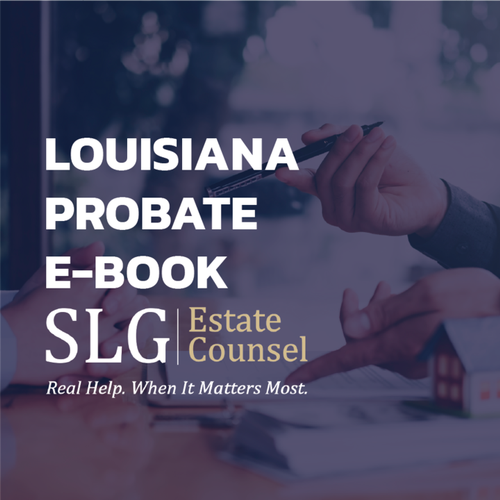An estate plan serves many purposes. For most Louisianans, writing a last will and testament seems among the easiest ways to ensure that their loved ones receive the inheritances they deserve. However, simple as a will may be to write, interpreting a decedent’s intent can pose unexpected challenges—challenges that, in many cases, could complicate an heir’s right to receive estate assets. 
Poorly Written Wills Can Risk Entire Inheritances
Anybody can write a will. With today’s technology, hundreds of websites offer state-specific templates to create wills, establish trusts, and make the sort of critical estate planning decisions once overseen by experienced attorneys.
While a simple, short will could help Bayou State residents save money, an estate plan could be thrust into unexpected jeopardy if it contains content errors.
Types of Content Errors in a Louisiana Will
- Typos
- Inaccuracies
- Ambiguous language
Often, a Louisiana succession court can easily ascertain the decedent’s intent. However, when inaccuracies and ambiguous language make it difficult to determine how the deceased person wished to distribute their assets, heirs may disagree on how inheritances should be disbursed.
Will Ambiguities That Could Compromise an Estate Plan
Ambiguous language of any form could bring the decedent’s intent into question. Common testamentary ambiguities can, for example, include a bequest that does not clearly specify who should receive a particular asset.
Other Will Ambiguities
- Gifts of real property or other assets to a person who is not of legal age to acquire the assets
- Gifts of assets that no longer exist, or have been retitled, since the decedent’s death
- A bequest that omits a recipient’s full legal name or mischaracterizes the relationship between the deceased person and the heir
- Estate plans that do not include certain forced heirs such as biological children who were born after the will was written
When a testamentary ambiguity cannot be resolved by the heirs and their legal counsel, a Louisiana probate court may adjudicate any resulting disputes.
How Courts Assess Ambiguous Testamentary Language
A last will and testament is supposed to be representative of a deceased person’s wishes. Since the Bayou State presumes that most adults have the legal capacity to make their own estate planning decisions, the courts typically seek to recognize and uphold the decedent’s intent.
According to the Louisiana Civil Code, the intent of the testator—the person who created the will—is paramount in adjudicating its interpretation.
What a Court May Consider When There’s a Will Contest
- The language of the will in its entirety
- Whether the will was drafted by a layperson or an attorney
- Evidence suggestive of the testator’s intent
If the language of the will is unambiguous and easily understood, the court may refuse to consider any additional evidence. However, if the will is opaque, the contesting heir has the opportunity to locate and present evidence indicating the decedent’s likely intent.
Protecting Your Rights During a Will Contest
Even with the right evidence, persuading a Louisiana succession court to reinterpret an ambiguous will could prove a monumental task. You could protect your right to an inheritance by:
- Collecting evidence demonstrative of the testator’s intent, including original copies of the last will and testament, codicils, and trust documents
- Preserving evidence, such as written correspondences and handwriting samples, that could be used to support or buffer your argument
- Refraining from discussing the estate and your lawsuit with any other parties who stand to inherit or otherwise benefit from the dissolution of the estate
Since will contests are a form of probate-related litigation, you should seriously consider contacting an experienced Louisiana succession attorney. A lawyer could help you gather and analyze the evidence needed to overcome the court’s high threshold for an estate challenge, constructing a compelling, evidence-based case for your right to inherit.
Contact a Louisiana Estate Litigation Attorney
Scott Law Group - Estate Counsel has years of experience helping Louisianans advocate for their rights. Please call us at 504-264-1057 to speak to a legal professional and explore your legal options.
|
Related links: |













